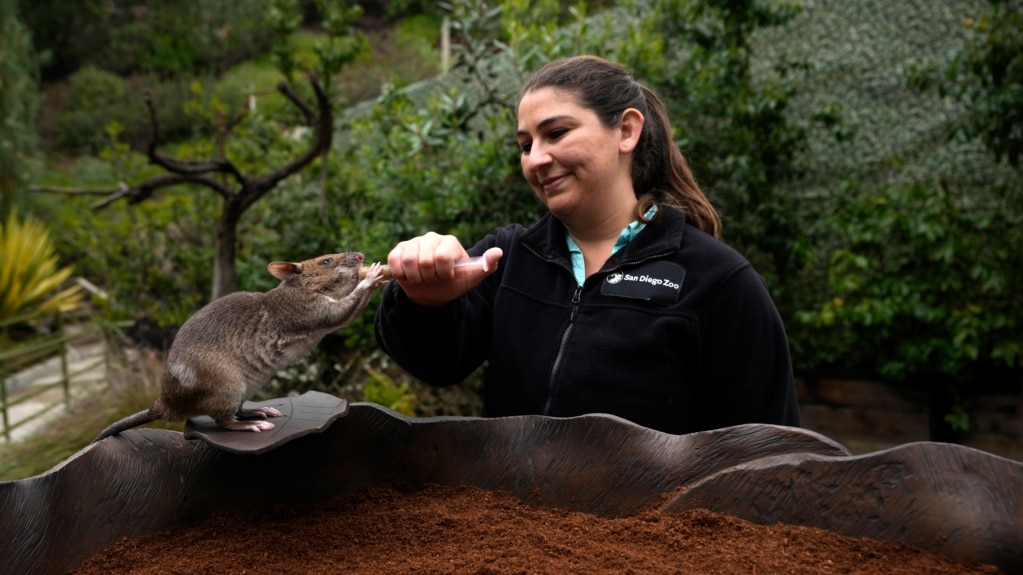Three zoos in the United States, including the San Diego Zoo, now have “hero rat” ambassadors, showing the abilities of the African giant pouched rats.
A Tanzania-based organization that trains the rats provided them to the zoos. The rats use their sense of smell to perform useful tasks like detecting diseases and landmines, helping fight wildlife trafficking and more.
Runa is the giant pouched rat at the San Diego Zoo. She was trained to find landmines. The rats can detect landmines and explosive materials in former war areas in countries like Angola, Mozambique and Cambodia.
But Runa was a little distracted doing that job. Cari Inserra, a wildlife care specialist at the San Diego Zoo, said Runa is now doing well as a rat ambassador.
Recently Runa used her sense of smell to find small amounts of tea that her trainers had hidden under dirt in a box. Once she found the tea, she was given a reward of a pellet and banana drink.
"One of the most fun things to see is how she changes the perceptions of people," Inserra said.
Nicki Boyd works for the San Diego Zoo and Wildlife Alliance. She said the zoo wants to show that rats are an important tool for fighting wildlife trafficking. She said that the illegal animal trade, “is very destructive to the species that we are actively trying to save and protect in the wild."
In March, six African rats finished training to find trafficked goods in a port in Tanzania. The wildlife is hidden in large shipping containers that leave the port of Dar es Salaam.
Some of the goods include pangolins, a scaly anteater that is one of the most trafficked animals in the world. Its meat is eaten as a delicacy in parts of Asia, and its scales are used in traditional Chinese medicine.
But rats still have a long way to go to improve their public image. Eric Adams is the mayor of New York City. Recently, he appointed Kathleen Corradi to help with the city’s rat problem.
During a news conference, Corradi talked about her hatred of rats and promised to use “science” to remove them. Rats can spread diseases like leptospirosis, which can lead to kidney and liver failure.
A New York City spokesperson called the city’s rats “dirty and diseased.” He said that they are a public health risk, and that the city will remove the rats in a humane way, when possible, but that the city will put the needs of the people first.
Izzy Szott is a research scientist for the Belgian non-profit group APOPO. The group trains rats to work for governments around the world. She hopes that having the ambassador rats at famous zoos will help people understand and support rat research.
Szott said that rats are "actually are quite clean animals." She added they clean themselves and lick their trainers’ arms with affection.
APOPO said that African giant pouched rats have found more than 150,000 landmines. The rats have also helped identify tuberculosis bacteria from 25,000 patients at African hospitals.
In Tanzania, Szott said researchers are training rats to identify pollution and to find people buried in destroyed buildings after disasters.
Szott added that she thinks giant pouched rats will be used at ports and airports in the future and may replace dogs to smell for explosives and drugs.
The common brown rat found in New York City has similar abilities, but they live only a few years. So, it is unlikely that they could be trained. African rats can live up to 10 years.
Speaking of the African pouched rat, Szott said the rat ambassadors will show, “just how smart they are and how we can co-exist with them.”
I’m Faith Pirlo.

